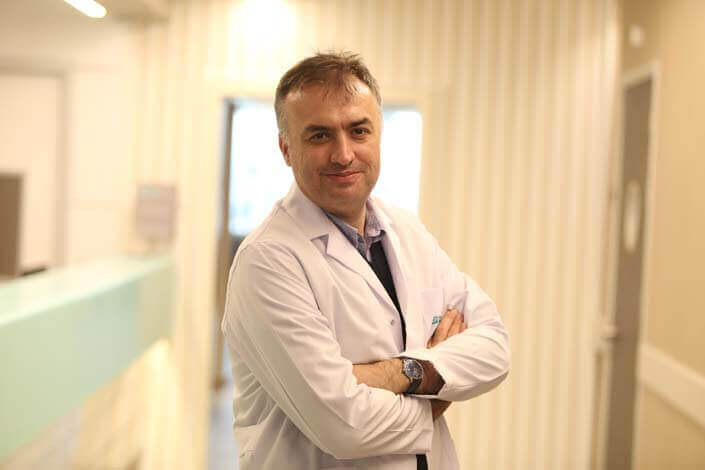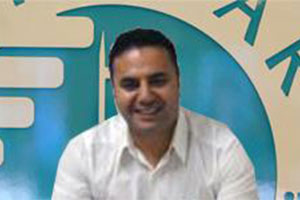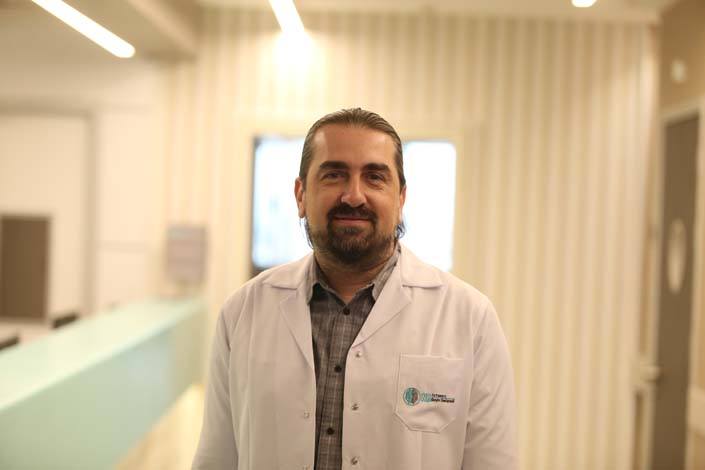Dizziness
Dizziness
Balance is a process in which the brain evaluates the information coming from the eyes, balance organs in the inner ear, and musculoskeletal system. A malfunction in one of these systems disrupts the harmony between these systems and may cause symptoms of imbalance or dizziness.
Dizziness is an illusion of motion. The patient feels as if he has a movement that is absent and thinks that he or his environment is moving.
The feeling of imbalance is the inability to balance a person with respect to his environment. Dizziness and balance disorder are quite common complaints. It is more common in the middle and advanced age group. It is very rare in childhood.

Evaluation
The most important step in the evaluation of the patient with dizziness and imbalance is to note the complaints in detail and to undergo a systematic examination. This can sometimes require a team effort. (otolaryngology, neurology, cardiology).
Most of the time, many technological tools can be used in the differential diagnosis.
(Audiometric tests, video nystagmography, caloric tests, routine biochemistry, electrocardiography, MRI, neck doppler, ultrasonography, etc.).
If the examination and the patient's history suggest a disease related to the ear, the patient's hearing should be checked with an audiometric examination. VNG (video nystagmography) is another test that shows inner ear functions. It is based on the recording of eye movements created by visual or caloric stimuli. It is an important feature that it can provide information about the location and size of the lesion that causes dizziness and that it provides documentation, especially in a computerized system.
Causes of Dizziness
Ear-related reasons: A large proportion of true dizziness is caused by ear-related diseases.
Position-related dizziness is the most common cause of dizziness in clinics dealing with vertigo. It is responsible for 50% of vertigo cases in advanced age groups. Typical complaints are the feeling of imbalance and nausea, together with rotational vertigo that occurs with head movements, lasts for seconds. In most patients, these complaints periodically improve and then recur.
The diagnosis is made by looking at the responses of the semicircular canals in the inner ear to some maneuvers during the tests. Its treatment is based on repositioning the crystals that have migrated inside the semicircular canals.
Meniere's disease; occurs with attacks of hearing loss, ringing in the ears, feeling of fullness, and dizziness. It is caused by an imbalance of the fluids in the inner ear. After a viral infection, ear diseases due to the effect of the balance nerve, acute, and chronic otitis media, ear diseases with hearing loss, sometimes dizziness due to rupture of the inner ear membranes for no reason whatsoever.
Traumas:
Dizziness with hearing loss may occur after a fracture in the skull, which is often caused by hard trauma of the head, causing damage to the inner ear. Sometimes, dizziness may occur due to the concussion of the inner ear structures without any skull fracture.
Neurological diseases:
Hemorrhage in the central nervous system organs such as the brain and cerebellum, blockages in blood vessels, multiple sclerosis, various brain tumors, and Parkinson's disease, can cause imbalance and headache.
Internal medicine diseases:
Heart failure, heart valve disease, diabetes, thyroid gland diseases, anemia, uncontrollable high blood pressure, position-related low blood pressure, heart rhythm disorders, sudden and severe dehydration (diarrhea, vomiting) can cause dizziness.
Besides, psychogenic dizziness can be seen.
Treatment
Treatment for dizziness is directed to the cause. Positional dizziness can be treated with maneuvers to correct the pathological condition detected during the tests.
The treatment applied in Meniere's disease aims to eliminate the complaints of the disease before primary dizziness during an attack. In the treatment between attacks, it is also important to identify and eliminate the triggering stress factors of the patient, to abandon a sedentary lifestyle, to encourage them to engage in occupational and sports activities, and to seek professional psychological help when necessary. Factors such as stress, fatigue, smoking, alcohol, and caffeine can trigger attacks in Meniere's disease. It is recommended to avoid salty foods and not to add salt after cooking.
The existence of individual-specific differences in the natural course of the disease makes the selection and method of treatment difficult. However, in general, 85% of patients benefit from medical treatment, and the rest of them require interventional treatments.
These include intratympanic treatments, local high-pressure application, ventilation tube application, endolymphatic sac surgery, and vestibular neurectomy.
If dizziness is due to acute or chronic otitis media, these diseases should be treated appropriately.
Other causes of dizziness are treated with various methods after the correct diagnosis is made by the relevant branch physicians.




